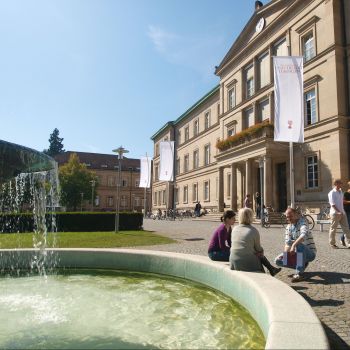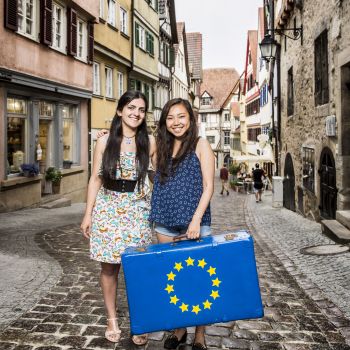28 June 2024
on course website
What's the Buzz? Society, Social Media, and Artificial Intelligence in Europe Today
Against the backdrop of the increasing importance of environmental hazards, social media and artificial intelligence (AI) today, this program deals with two main questions: what constitutes good societies in Europe (and elsewhere) in the 21st century and how can we protect our communities from breaking apart due to increasing environmental and technological pressure?. Using nature (and what we can still learn from it to benefit our human societies) as a starting point, classes introduce bees as nature's key species to illustrate the many environmental predicaments of our time. Bees are also inspiring civic engagement at the local level in favour of different forms of more sustainable and inclusive relationships that can bolster strong human communities. Furthermore, participants will analyze anti-European online discourses on social media in order to strengthen their own media literacy, especially regarding the ability to detect possible AI-induced mis- and disinformation which threaten solidarity among the various groups of modern societies.
In addition to this academic program, the school includes German language courses on proficiency levels A1 (no German knowledge) and A1-A2 (beginners). Participation in the German language course is compulsory. The courses will be taught by qualified instructors of the Department of German as a Foreign Language and Intercultural Programs. Through an intercultural and communicative approach students will be actively involved in class to encourage language learning. The focus will be on speaking and listening to improve students' language competence in everyday situations.
For participants with a higher German language level (B1-C1), we will offer the possibility of independently carrying out project work (or similar) in German in consultation with the T-IES team.
The school also offers an intercultural workshop that prepares participants for the very diverse setting in which all classes take place, a buddy program which matches each participant with local students who offer support throughout the summer school (and before), and a rich and varied social program that offers many opportunities to experience arts, culture, and local student life in one of Germany’s most historical university towns.
Course leader
The courses are taught by University of Tübingen faculty and experts dedicated to the study of Europe.
Target group
The courses are designed for undergraduate students from all academic disciplines with a strong general interest in cultures, Europe and Germany in particular. A very good command of English and the willingness to actively participate during course activities are required.
Course aim
By familiarizing themselves with how the EU works today and the recent challenges it faces, at the end of the course students will have solid knowledge about the process, potential benefits and pitfalls of regional integration which they can not only apply to Europe alone, but to other world regions as well. They will be able to identify and understand the dynamics of transnational policy-making and how the coordination of political activities among nation states generally impacts the lives of citizens in many countries at the same time.
Credits info
8 EC
After successful completion of all courses and fulfillment of all course requirements 8 ECTS credits will be awarded for participation in the Summer School (subject courses: 6 ECTS credits; German language course and intercultural workshop: 2 ECTS credits).
The University of Tübingen applies the European Credit Transfer and Accumulation System (ECTS). The ECTS is a system for international recognition of academic achievements and transfer of study credits. Thus, study and examination performance achieved during a study abroad can be recognized by the home university.
At the University of Tübingen 1 ECTS equals a workload of 30 hours. The workload comprises regular presence and active participation in the courses, private and independent study, preparation of projects and examinations (e.g. written test, oral presentation, essay). The attendance at a course of 45 min will be counted as 1 contact hour (60 min).
Fee info
EUR 1950: The price includes
- All courses
- Course materials
- Study trips
- Accommodation in Tübingen
- Cultural and social activities
- A public transportation ticket for use within Tübingen
- Welcome and Farewell reception
EUR 1800: For students who are enrolled at a partner university of the University of Tübingen the program fee will be € 1,800.
on course website




